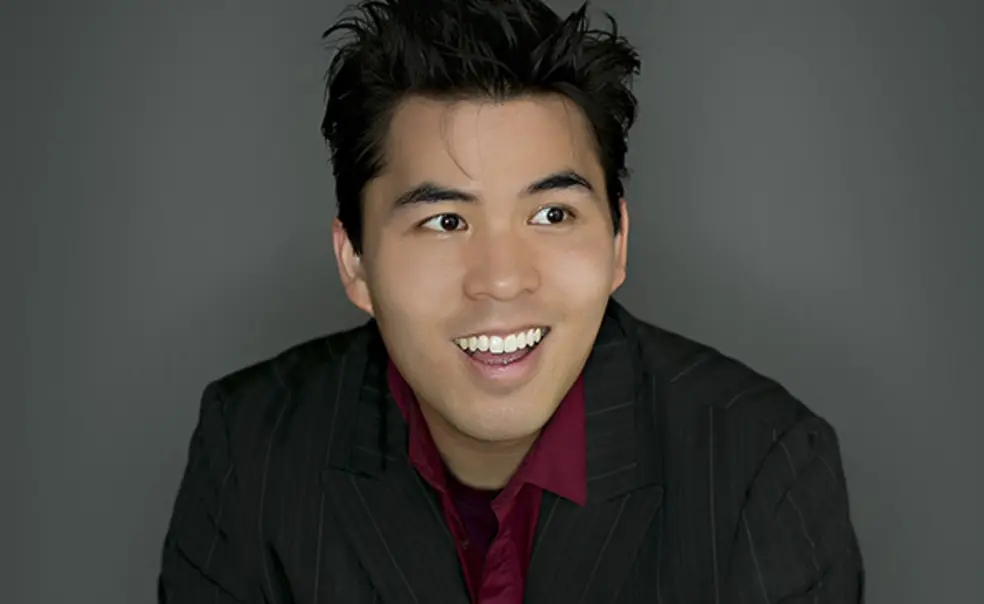Barry Lam *07, an associate professor of philosophy at Vassar College and creator of the new Hi-Phi Nation podcast, says that his show “turns stories into ideas.” It’s a tagline that speaks to more general appeal than, say, a Kant seminar. But Lam hopes the podcast also will engage his peers in academia. “There’s more to what we do than just talking to each other through research articles,” he says. Reporting, editing, and producing the show has proven to be an immersive experience for Lam, who is spending the year at Duke University as a visiting faculty fellow in the Humanities Writ Large Initiative. He spoke with PAW about his deep dive into podcasting.
Getting started
“The idea came to me four years ago. I was sitting around with a bunch of soldiers at West Point — officers who were there to teach philosophy to cadets. They were telling me about their war experiences and how it made them think differently about the morality of war. And I thought, ‘that’s actually a great episode for a show.’
“When I had a sabbatical a year and a half ago, I decided I was going to try to do this project. … [After producing one episode], I started applying for fellowships and got the attention of a couple of people at Duke. They have this fellowship for liberal-arts college professors. It’s completely non-standard: I’m not here to work on a book or any research papers; I’m actually here to bring storytelling to philosophy in an audio medium.”
Ph.D. paradox
“[As a graduate student], you are there to be trained to be an expert in the field, and I was trained very well. … To be honest, while I was at Princeton I had a constant belief or fear or reservation that I didn’t belong there, that everybody was doing excellent things and I wasn’t. That’s interesting because what happens is when you leave, and you start trying to branch out like I have — I’ve branched from philosophy to audio production — I think that Princeton … actually has given me a lot of confidence outside of that environment.”
Podcast influences
“Anybody who listens to the show will hear almost immediately that it’s got a heavy This American Life influence because I feel like everybody in my generation is influenced by This American Life. … More recently I’ve listened to a lot of Radiotopia shows — Love+Radio, 99% Invisible — so I’ve gotten a little bit of an influence in production. When I listen to these shows, I think about what they’re trying to do [and] how well they’re achieving it.
“I saw how much Freakonomics was doing for that discipline, just as part of the culture in addition to being an academic discipline. Freakonomics really brought out a lot of economic literacy and economic interest in people and in the students who are coming into college. … I think that philosophy has a lot to offer people also, and there isn’t a similar kind of show.”
A fresh approach
“Most philosophy is done in writing, even the popular stuff. With podcasting, all of the philosophy shows are one-on-one interview shows or talk shows. I think that they do have this mission of trying to [bring] philosophy to a lot of people, but they don’t integrate this narrative, storytelling element that’s very effective at gripping people. … What does it look like to investigate a story with philosophy? Nobody does it. Philosophy research doesn’t include that, nobody trains us how to do it. So I’m in the process of making up what that looks like.”
Interview conducted and condensed by Brett Tomlinson












1 Response
James C. Parham Jr. ’52
8 Years AgoBarry Lam’s inspiration to...
Barry Lam's inspiration to introduce philosophy into our national conversation is brilliant, exciting and a beacon of hope for the liberal arts. It is an unexpected, and thrilling, blip in the torrent of shallow and "selfie" stuff overloading our futuristic communication systems. Another Princeton spectacular was the introduction of the course in epistemology, without which, as I see it, philosophy and even science are incomplete.